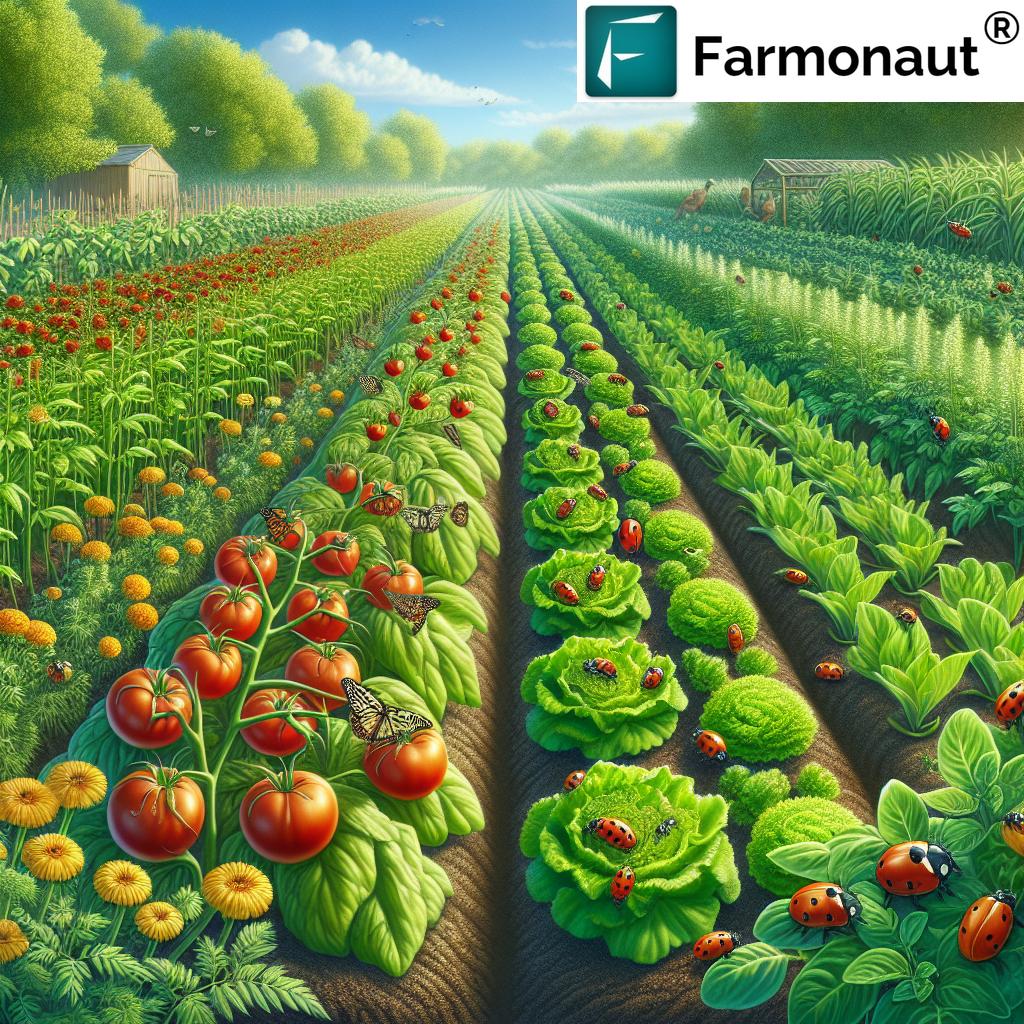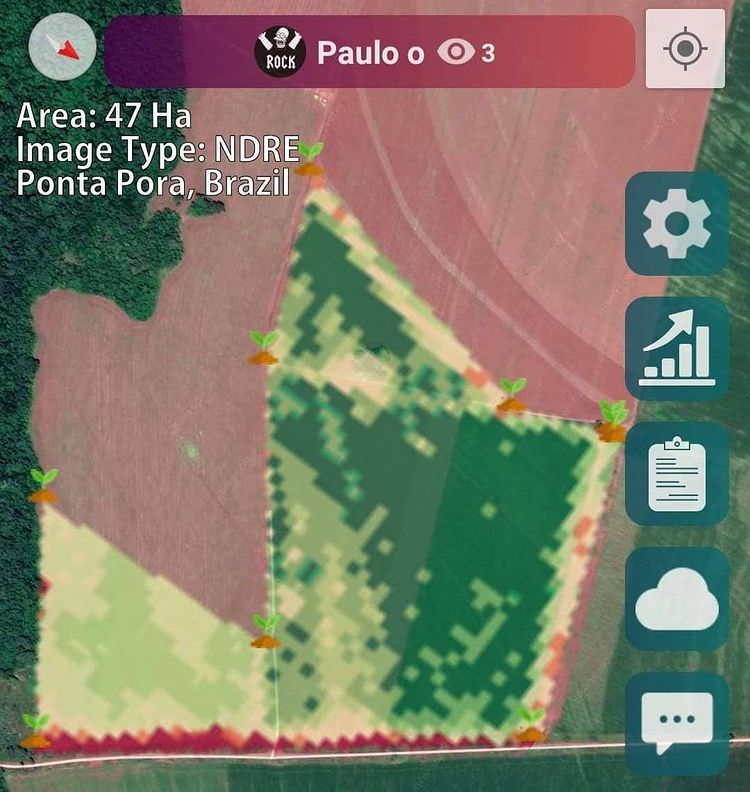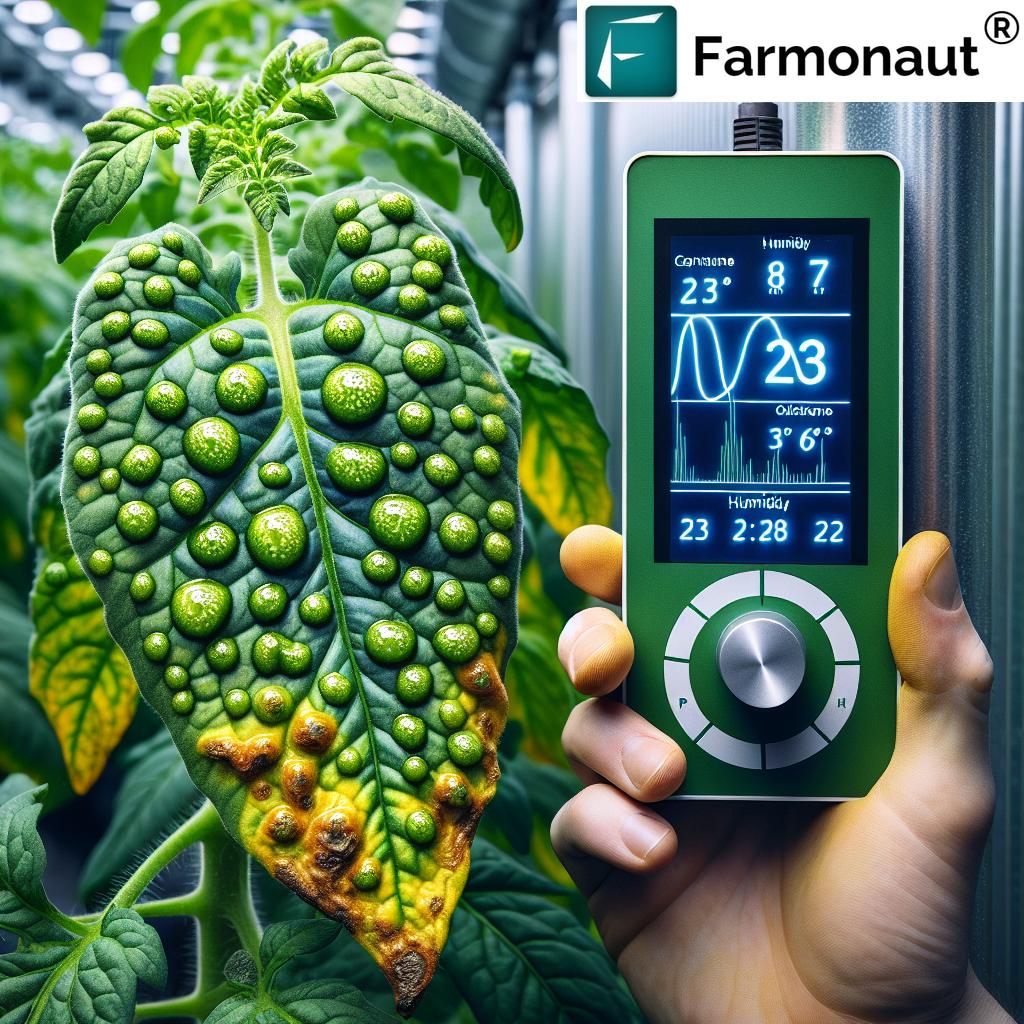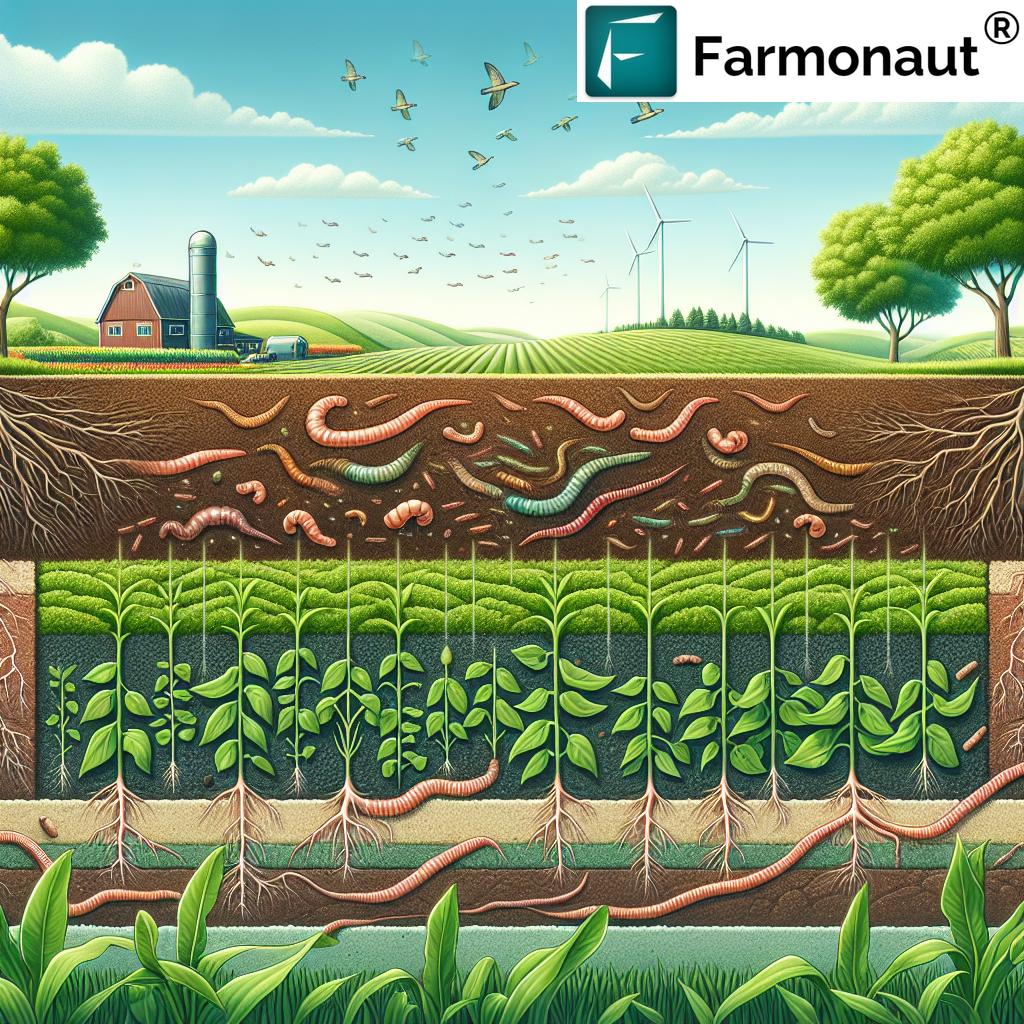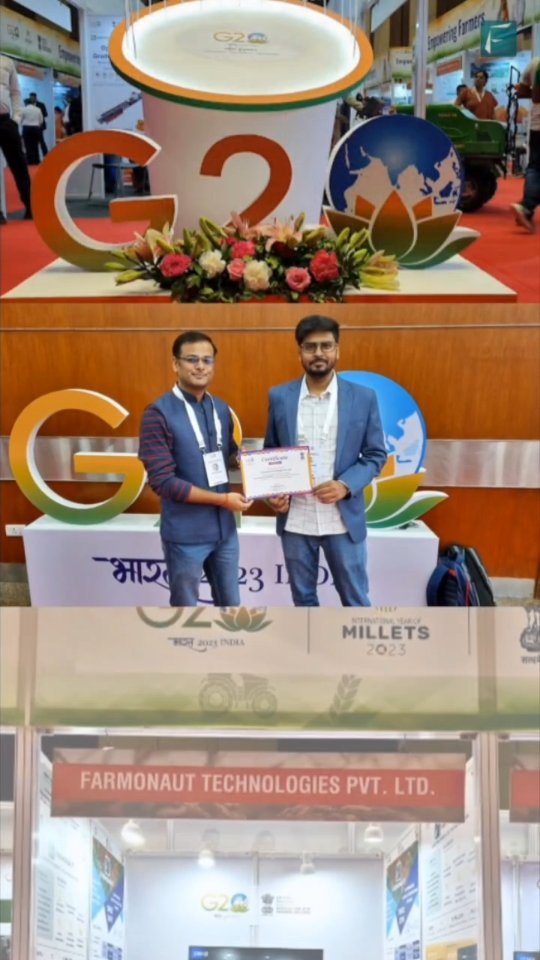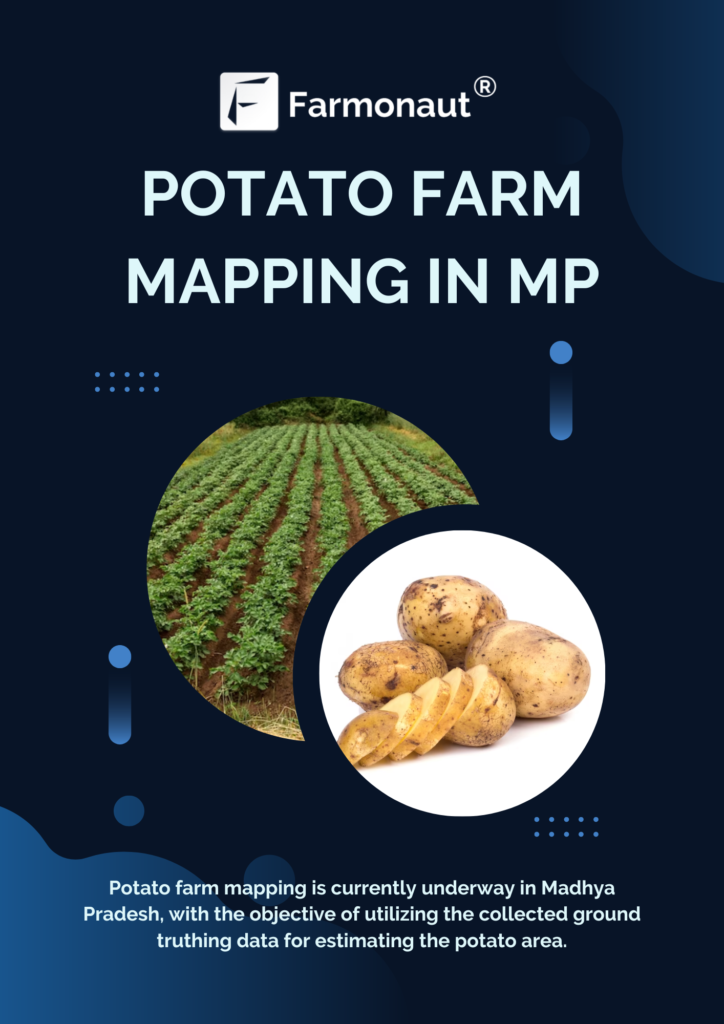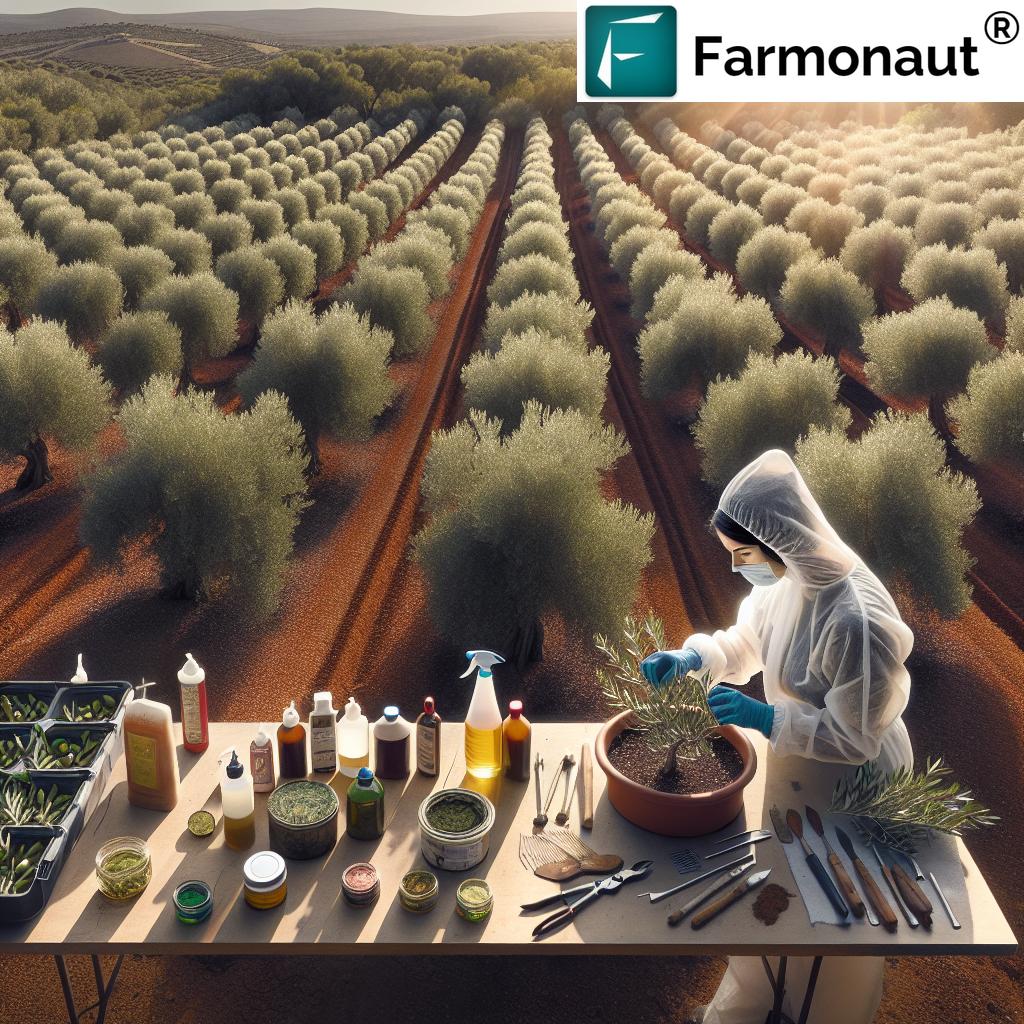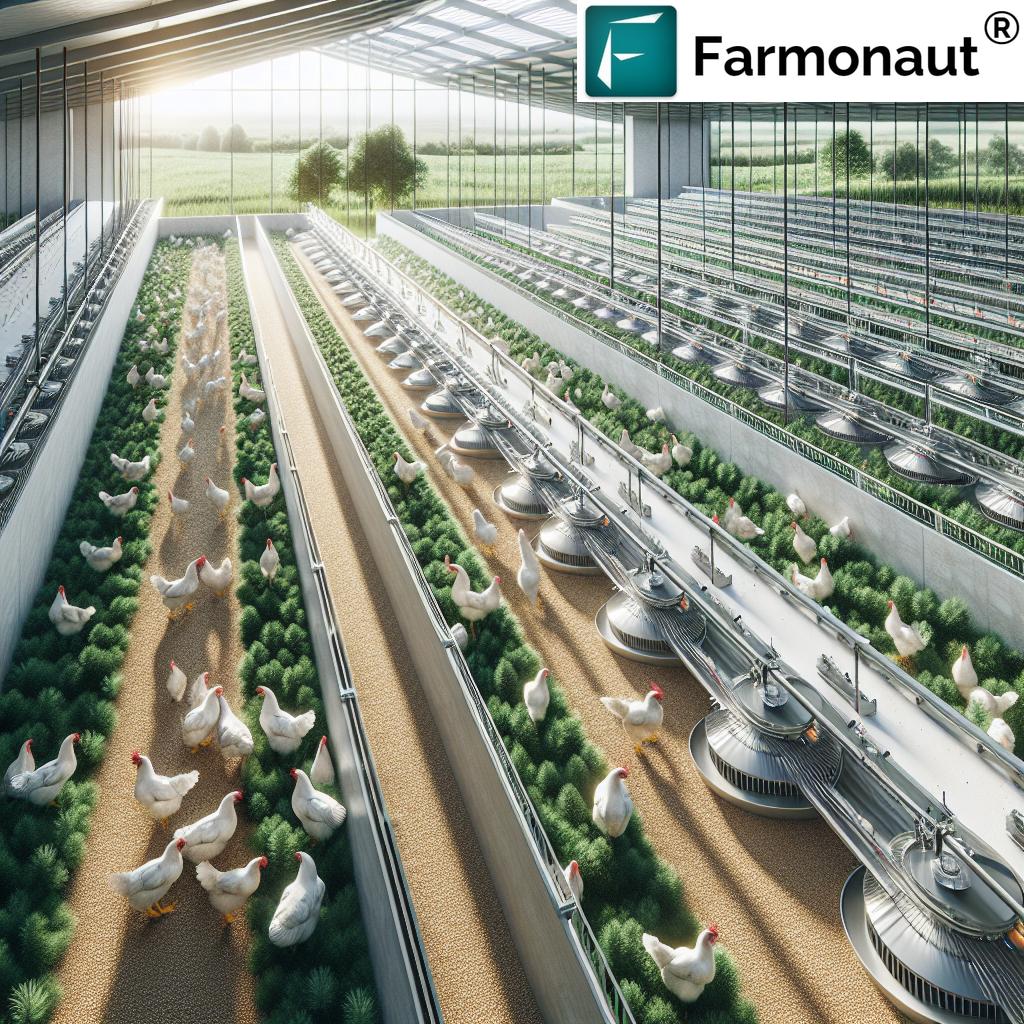Revolutionizing Food Safety: Farmonaut’s Cutting-Edge Approach to Agricultural Risk Management and Sustainable Crop Protection
“Farmonaut’s agricultural data management systems analyze over 1 million crop protection data points daily, revolutionizing farming practices.”
In today’s rapidly evolving agricultural landscape, the importance of food safety assessment and agricultural risk management cannot be overstated. As we navigate the complexities of modern farming, we find ourselves at the forefront of a technological revolution that is reshaping the way we approach crop protection, pesticide management, and overall plant health monitoring. At Farmonaut, we are proud to be at the vanguard of this transformation, offering cutting-edge solutions that address the most pressing challenges in agricultural science and food safety.
Our commitment to revolutionizing food safety is rooted in a deep understanding of the intricate relationships between sustainable agriculture practices, environmental stewardship, and the ever-growing demand for safe, nutritious food. Through our advanced satellite-based farm management solutions, we are empowering farmers, agribusinesses, and regulatory bodies with the tools and insights needed to make informed decisions that not only optimize crop yields but also ensure the highest standards of food safety.
The Critical Role of Food Safety Assessment in Modern Agriculture
Food safety assessment forms the cornerstone of our agricultural risk management strategy. In an era where consumers are increasingly concerned about the quality and safety of their food, it is imperative that we employ rigorous scientific methodologies to evaluate and mitigate potential risks throughout the food production chain.
- Comprehensive toxicological evaluations of active substances
- Stringent pesticide residue analysis
- Advanced plant health monitoring techniques
- Robust food additive safety protocols
These elements collectively contribute to a holistic approach to food safety that not only protects consumer health but also fosters trust in the agricultural products that reach our tables.
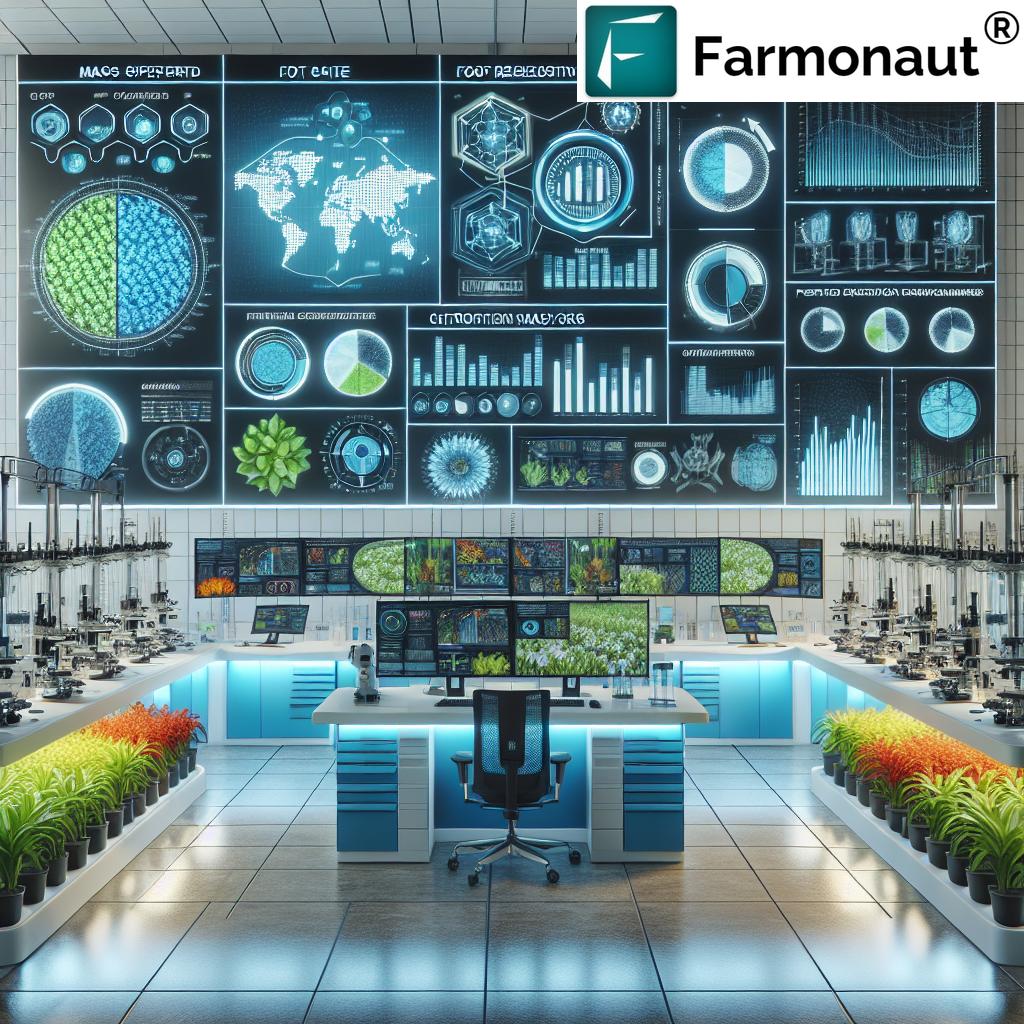
Sustainable Crop Protection: Balancing Efficacy and Environmental Stewardship
At the heart of our mission lies a commitment to sustainable crop protection. We recognize that the judicious use of crop protection products is essential for ensuring food security and agricultural productivity. However, we also understand the paramount importance of minimizing the environmental impact of pesticides and promoting ecological balance.
Our approach to sustainable crop protection encompasses:
- Integrated Pest Management (IPM) strategies
- Precision application of crop protection products
- Promotion of biological control agents
- Development of environmentally friendly pesticide formulations
By leveraging our satellite-based technology and AI-driven insights, we enable farmers to make precise decisions on when and where to apply crop protection products, significantly reducing overall pesticide use while maintaining optimal crop health.
The Role of Genetically Modified Crops in Food Security
The debate surrounding genetically modified (GM) crops continues to be a focal point in discussions about global food security. At Farmonaut, we recognize the potential of GM crops to address pressing agricultural challenges, such as pest resistance, drought tolerance, and nutritional enhancement. However, we also acknowledge the importance of rigorous safety assessments and transparent regulatory processes in the development and deployment of these technologies.
Our satellite monitoring capabilities provide valuable data on the performance and environmental impact of GM crops, contributing to evidence-based decision-making in this critical area of agricultural innovation.
Revolutionizing Agricultural Data Management
In the era of big data, effective agricultural data management is crucial for informed decision-making and risk mitigation. Farmonaut’s advanced data management systems integrate multiple sources of information, including:
- Satellite imagery for real-time crop monitoring
- Weather data for precise forecasting
- Soil health indicators
- Historical crop performance data
By synthesizing this wealth of information, we provide farmers and agricultural stakeholders with actionable insights that drive productivity, sustainability, and food safety.
Explore our cutting-edge agricultural data management solutions:
The Importance of Stakeholder Involvement in Regulatory Decision-Making
“Public consultations on food safety market authorizations involve feedback from more than 10,000 stakeholders annually, ensuring comprehensive regulatory decision-making.”
Public consultations play a vital role in shaping regulatory frameworks for food safety and agricultural practices. At Farmonaut, we strongly advocate for inclusive decision-making processes that consider the perspectives of diverse stakeholders, including farmers, scientists, consumer groups, and industry representatives.
Our platform facilitates the collection and analysis of data that can inform these consultations, providing a scientific basis for policy decisions related to:
- Market authorizations for novel food technologies
- Generic risk assessments for emerging contaminants
- Regulatory standards for pesticide residues
- Guidelines for sustainable agriculture practices
By promoting transparency and evidence-based decision-making, we contribute to the development of robust regulatory frameworks that protect public health while fostering innovation in the agricultural sector.
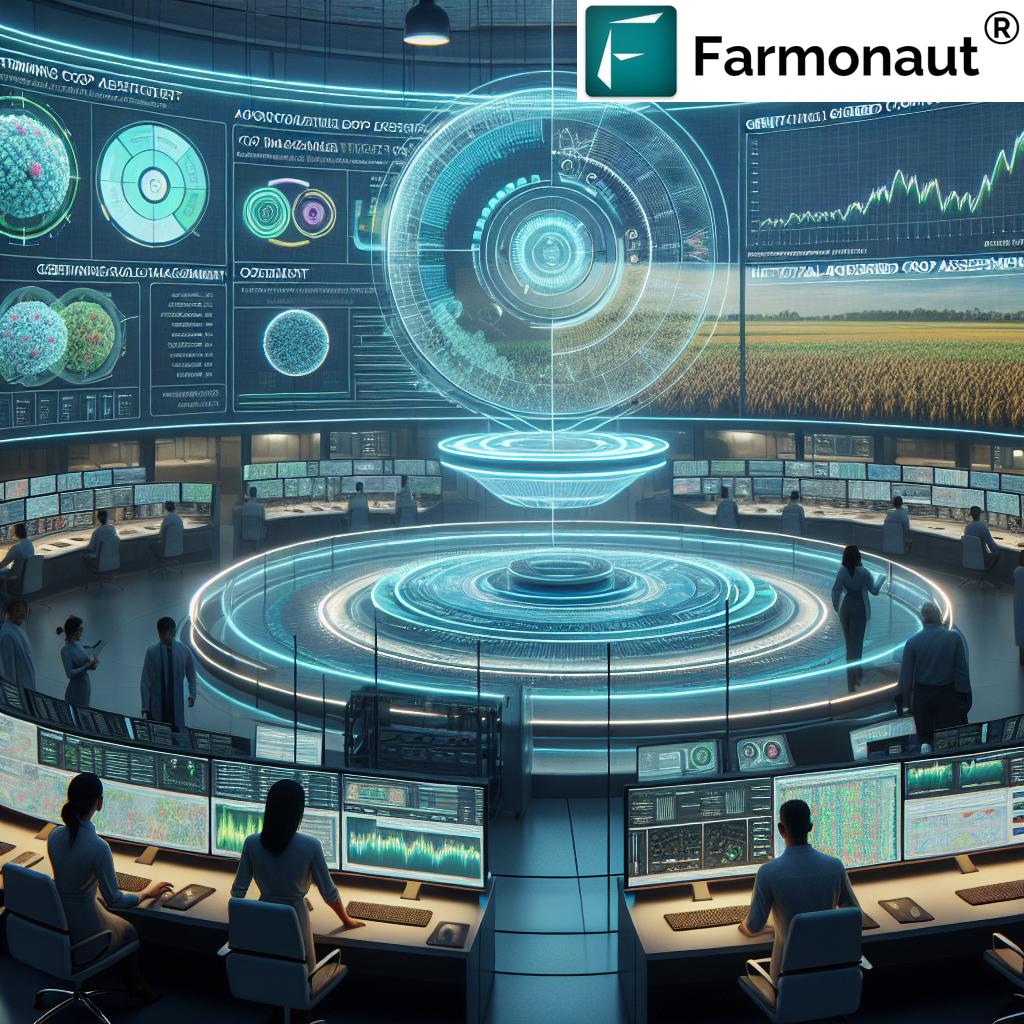
Emerging Trends in Agricultural Science and Food Safety
As we look to the future of agriculture and food production, several key trends are shaping the landscape of food safety and crop protection:
- Precision Agriculture: Leveraging satellite data and AI for targeted crop management
- Biocontrol Agents: Increasing use of naturally occurring organisms for pest control
- Nanotechnology: Development of nano-formulations for enhanced pesticide efficacy and reduced environmental impact
- Blockchain for Traceability: Improving supply chain transparency and food safety verification
- Plant-Based Alternatives: Assessing the safety and nutritional profiles of novel plant-based food products
At Farmonaut, we are at the forefront of these innovations, continuously adapting our technology and services to meet the evolving needs of the agricultural sector.
The Environmental Impact of Pesticides: A Balanced Approach
While pesticides play a crucial role in protecting crops from pests and diseases, their potential environmental impact cannot be ignored. At Farmonaut, we advocate for a balanced approach that maximizes the benefits of crop protection products while minimizing their ecological footprint.
Our satellite-based monitoring systems enable precise assessment of:
- Pesticide drift patterns
- Impact on non-target organisms
- Persistence in soil and water bodies
- Effects on biodiversity in agricultural landscapes
By providing farmers with this detailed information, we empower them to make environmentally conscious decisions about pesticide use, promoting sustainable agriculture practices that protect both crops and ecosystems.
Advancing Food Additive Safety
Food additives play a critical role in modern food production, enhancing flavor, texture, and shelf life. However, ensuring the safety of these substances is paramount. Our approach to food additive safety encompasses:
- Rigorous toxicological evaluations
- Assessment of potential interactions with other food components
- Long-term exposure studies
- Monitoring of emerging research on additive safety
Through our data management systems, we contribute to the ongoing assessment and re-evaluation of food additives, ensuring that regulatory standards keep pace with the latest scientific evidence.
Explore our API solutions for advanced agricultural data analysis:
The Future of Agricultural Risk Management
As we look ahead, the future of agricultural risk management is inextricably linked to technological innovation and data-driven decision-making. At Farmonaut, we are committed to pushing the boundaries of what’s possible in agricultural science and food safety.
Our vision for the future includes:
- Advanced predictive modeling for pest outbreaks and crop diseases
- Integration of machine learning algorithms for optimized resource allocation
- Development of novel sensing technologies for real-time contaminant detection
- Enhanced collaboration between farmers, researchers, and regulatory bodies through digital platforms
By staying at the forefront of these developments, we aim to create a more resilient, sustainable, and safe global food system.
Comparative Analysis of Agricultural Risk Management Techniques
To provide a comprehensive overview of the various approaches to agricultural risk management, we have compiled a comparative analysis of key techniques:
| Risk Management Technique | Primary Application | Effectiveness Rating (1-5) | Environmental Impact | Implementation Cost ($/hectare) | Regulatory Compliance Level |
|---|---|---|---|---|---|
| Integrated Pest Management | Pest Control | 4 | Low | 150-300 | High |
| Precision Agriculture | Resource Optimization | 5 | Low | 200-500 | Medium |
| Crop Rotation | Soil Health | 4 | Low | 50-100 | Medium |
| Genetic Modification | Crop Resilience | 4 | Medium | 300-700 | High |
| Biological Control | Pest Management | 3 | Low | 100-250 | Medium |
| Chemical Pesticides | Pest & Disease Control | 4 | High | 150-400 | High |
| Sustainable Soil Management | Soil Health | 4 | Low | 100-300 | Medium |
This comparison highlights the diverse range of options available to farmers and agricultural stakeholders, each with its own set of benefits and considerations. At Farmonaut, we leverage our advanced data analytics capabilities to help our clients determine the most appropriate risk management strategies for their specific contexts.
Conclusion: A Holistic Approach to Food Safety and Agricultural Risk Management
As we navigate the complex landscape of modern agriculture, it is clear that a holistic, data-driven approach to food safety and agricultural risk management is essential. At Farmonaut, we are committed to providing the tools, insights, and expertise needed to address the multifaceted challenges facing the global food system.
By integrating cutting-edge satellite technology, AI-driven analytics, and a deep understanding of agricultural science, we empower stakeholders across the food production chain to make informed decisions that promote safety, sustainability, and productivity. Our commitment to innovation, coupled with a steadfast focus on scientific rigor and regulatory compliance, positions us as a trusted partner in the ongoing effort to revolutionize food safety and agricultural practices.
As we look to the future, we remain dedicated to pushing the boundaries of what’s possible in agricultural technology, always with the goal of creating a more resilient, sustainable, and safe global food system for generations to come.
Frequently Asked Questions (FAQ)
- What is Farmonaut’s primary focus in agricultural risk management?
Farmonaut specializes in providing advanced satellite-based farm management solutions that integrate AI and data analytics to optimize crop protection, enhance food safety, and promote sustainable agricultural practices. - How does Farmonaut contribute to food safety assessment?
We provide real-time crop monitoring data and analytics that support comprehensive toxicological evaluations, pesticide residue analysis, and plant health monitoring, contributing to robust food safety protocols. - What role does Farmonaut play in sustainable crop protection?
Our technology enables precise application of crop protection products, promotes integrated pest management strategies, and supports the development of environmentally friendly pesticide formulations through data-driven insights. - How does Farmonaut address the environmental impact of pesticides?
Our satellite-based monitoring systems allow for precise assessment of pesticide drift patterns, impact on non-target organisms, and persistence in the environment, enabling farmers to make more environmentally conscious decisions. - Can Farmonaut’s technology be used for monitoring genetically modified crops?
Yes, our satellite monitoring capabilities provide valuable data on the performance and environmental impact of GM crops, contributing to evidence-based decision-making in this area. - How does Farmonaut support public consultations and regulatory decision-making?
We facilitate the collection and analysis of agricultural data that can inform public consultations, providing a scientific basis for policy decisions related to food safety and agricultural practices. - What emerging trends in agricultural science does Farmonaut address?
We are at the forefront of precision agriculture, biocontrol agents, nanotechnology in crop protection, blockchain for traceability, and the assessment of novel food technologies. - How can farmers access Farmonaut’s services?
Farmers can access our services through our web application, mobile apps for Android and iOS, and API solutions for advanced agricultural data analysis. - Does Farmonaut offer solutions for large-scale agribusinesses?
Yes, our scalable platform caters to individual farmers, cooperatives, and large agribusinesses, offering tailored solutions for agricultural risk management and sustainable crop protection. - How does Farmonaut contribute to the future of agricultural risk management?
We are continuously developing advanced predictive modeling, machine learning algorithms, and novel sensing technologies to create a more resilient, sustainable, and safe global food system.





